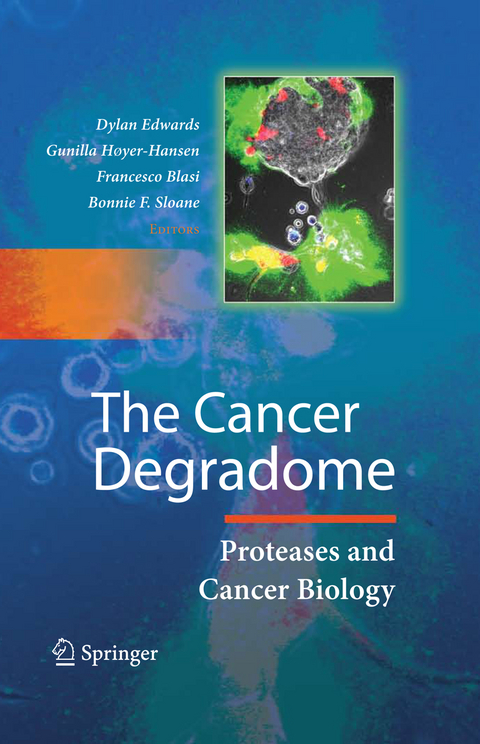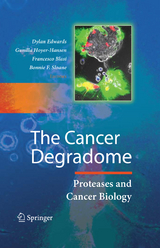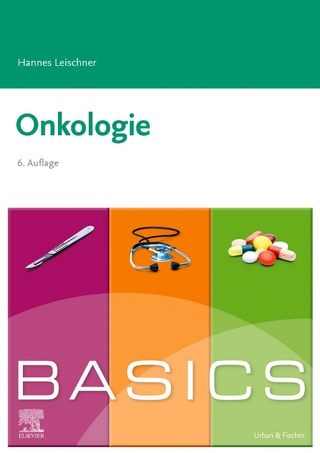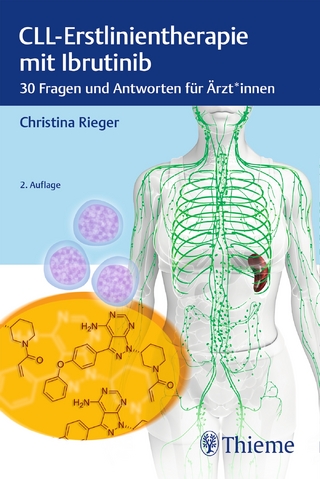The Cancer Degradome
Springer-Verlag New York Inc.
978-0-387-69056-8 (ISBN)
Proteolysis is essential for life. From the breakdown of proteins in food for biosynthesis, through to antigen processing in the immune system, the blood cl- ting cascade, and the hormone-regulated remodelling of female reproductive tissues in adult mammals - proteolysis governs functionality, homeostasis, and fate at the levels of the cell and the entire organism. For the cancer cell, intracellular prote- ysis carried out by caspases and the proteasome must be enlisted and controlled to allow it to escape apoptosis. Functioning on the cancer cell surface or in the extracellular milieu, secreted proteases (primarily metalloproteinases, serine p- teases, and cathepsins) determine the interactions of cells with their environments. Once considered simply as promoting tumour cell invasion through tissue barriers, proteolysis is now known to be integral to many aspects of cancer biology, including angiogenesis, regulation of the bioavailability of growth factors, cellular adhesion, cytokine/chemokine signalling, in?ammatory cell recruitment, and the mobilization of normal cells from their tissue compartments to act as accomplices in metastasis.
The last decade has witnessed a revolution in our thinking concerning the role of extracellular proteolysis in cancer biology: this is the primary focus of this book.
The Degradome and Its Analysis.- Protease Genomics and the Cancer Degradome.- The CLIP-CHIP™: A Focused Oligonucleotide Microarray Platform for Transcriptome Analysis of the Complete Human and Murine Cancer Degradomes.- The Hu/Mu ProtIn Chip: A Custom Dual-Species Oligonucleotide Microarray for Profiling Degradome Gene Expression in Tumors and Their Microenvironment.- Quantitative Real-Time PCR Analysis of Degradome Gene Expression.- Identification of Protease Substrates by Mass Spectrometry Approaches-1.- Identification of Protease Substrates by Mass Spectrometry Approaches-2.- Activity-Based Imaging and Biochemical Profiling Tools for Analysis of the Cancer Degradome.- Images of Cleavage: Tumor Proteases in Action.- Insights into Protease Function.- Proteolytic Pathways: Intersecting Cascades in Cancer Development.- Physiological Functions of Plasminogen Activation: Effects of Gene Deficiencies in Humans and Mice.- The Plasminogen Activation System in Tissue Remodeling and Cancer Invasion.- The Urokinase Plasminogen Activator Receptor as a Target for Cancer Therapy.- The Endocytic Collagen Receptor, uPARAP/Endo180, in Cancer Invasion and Tissue Remodeling.- Physiological and Pathological Functions of Type II Transmembrane Serine Proteases: Lessons from Transgenic Mouse Models and Human Disease-Associated Mutations.- Roles of Cysteine Proteases in Tumor Progression: Analysis of Cysteine Cathepsin Knockout Mice in Cancer Models.- In Vitro and In Vivo Models of Angiogenesis to Dissect MMP Functions.- The Surface Transplantation Model to Study the Tumor–Host Interface.- Unravelling the Roles of Proteinases in Cell Migration In Vitro and In Vivo.- New Insights into MMP function in Adipogenesis.- TIMPs: Extracellular Modifiers in Cancer Development.- The InterfaceBetween Proteolysis and Cell Signalling.- Invadopodia: Interface for Invasion.- uPAR and Proteases in Mobilization of Hematopoietic Stem Cells.- The Urokinase Receptor and Integrins Constitute a Cell Migration Signalosome.- Measuring uPAR Dynamics in Live Cells.- Janus-Faced Effects of Broad-Spectrum and Specific MMP Inhibition on Metastasis.- Cytokine Substrates: MMP Regulation of Inflammatory Signaling Molecules.- Matrix Metalloproteinases as Key Regulators of Tumor–Bone Interaction.- The Degradome as Source of Cancer Diagnostic and Markers.- The Plasminogen Activation System as a Source of Prognostic Markers in Cancer.- Cysteine Cathepsins and Cystatins as Cancer Biomarkers.- Novel Degradome Markers in Breast Cancer.- Meta-Analysis of Gene Expression Microarray Data: Degradome Genes in Healthy and Cancer Tissues.- Degradome Gene Polymorphisms.- TIMP-1 as a Prognostic Marker in Colorectal Cancer.- Novel Therapeutic Strategies.- Structure and Inhibition of the Urokinase-Type Plasminogen Activator Receptor.- Engineered Antagonists of uPA and PAI-1.- MMP Inhibitor Clinical Trials – The Past, Present, and Future.- Tailoring TIMPs for Selective Metalloproteinase Inhibition.- Third-Generation MMP Inhibitors: Recent Advances in the Development of Highly Selective Inhibitors.- Protease-Activated Delivery and Imaging Systems.- Development of Tumour-Selective and Endoprotease-Activated Anticancer Therapeutics.- Targeting Degradome Genes via Engineered Viral Vectors.
| Zusatzinfo | XXIII, 926 p. With 2 16-page inserts. |
|---|---|
| Verlagsort | New York, NY |
| Sprache | englisch |
| Maße | 155 x 235 mm |
| Themenwelt | Medizin / Pharmazie ► Medizinische Fachgebiete ► Onkologie |
| Medizin / Pharmazie ► Studium | |
| ISBN-10 | 0-387-69056-5 / 0387690565 |
| ISBN-13 | 978-0-387-69056-8 / 9780387690568 |
| Zustand | Neuware |
| Informationen gemäß Produktsicherheitsverordnung (GPSR) | |
| Haben Sie eine Frage zum Produkt? |
aus dem Bereich




